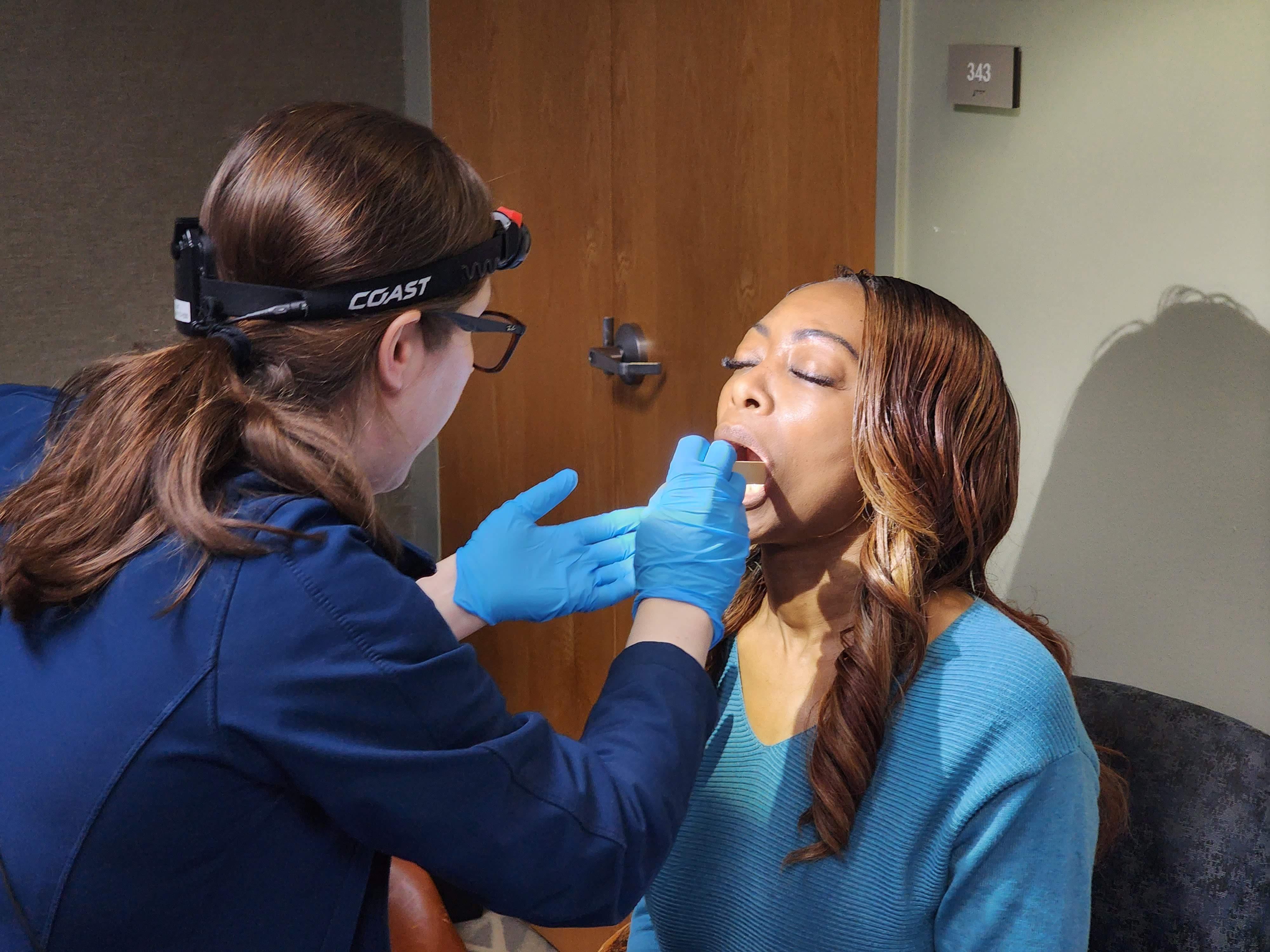Cancers in the neck, mouth and head are the fifth most common cancers in the nation, and experts say Mississippians are at a greater risk because of the state’s high tobacco use. The University of Mississippi Medical Center hosted a free screening clinic in Jackson on Wednesday to raise awareness of these cancers. Dr. Anne Kane, a head and neck surgeon at the medical center, says non-invasive oral screenings can help save lives.
“Our patients are just filling out forms at first just to see if they have any symptoms such as oral ulsers, neck masses, any difficulty swallowing or throat pain[...] present for more than 2-3 weeks in an adult. That could be a warning sign of having a oral cancer, oropharyngeal cancer,” says Dr. Kane. “It’s a non-invasive exam. We’re just taking a good look in the mouth, in the throat, and palpating the neck for any potential masses.”
These exams are most often performed during dental checkups as dentists examine the mouth and throat for irregularities. But more than 40% of Mississippians have reported not seeing a dentist in more than a year according to America’s Health Rankings.
Kimberly Funchess of Jackson participated in the free clinic, and says it just took 15 minutes to get in and out of the door.
Funchess says “It was super simple, super easy, and the physician who did my screening was extremely informative. I found out some things about ears, nose, eyes that related to the cancer screenings I had not been aware of previously.”
If oral cancer is identified early at stages 1 or 2, treatments have an 80% success rate, but a delayed diagnosis could increase the chance for mortality.




